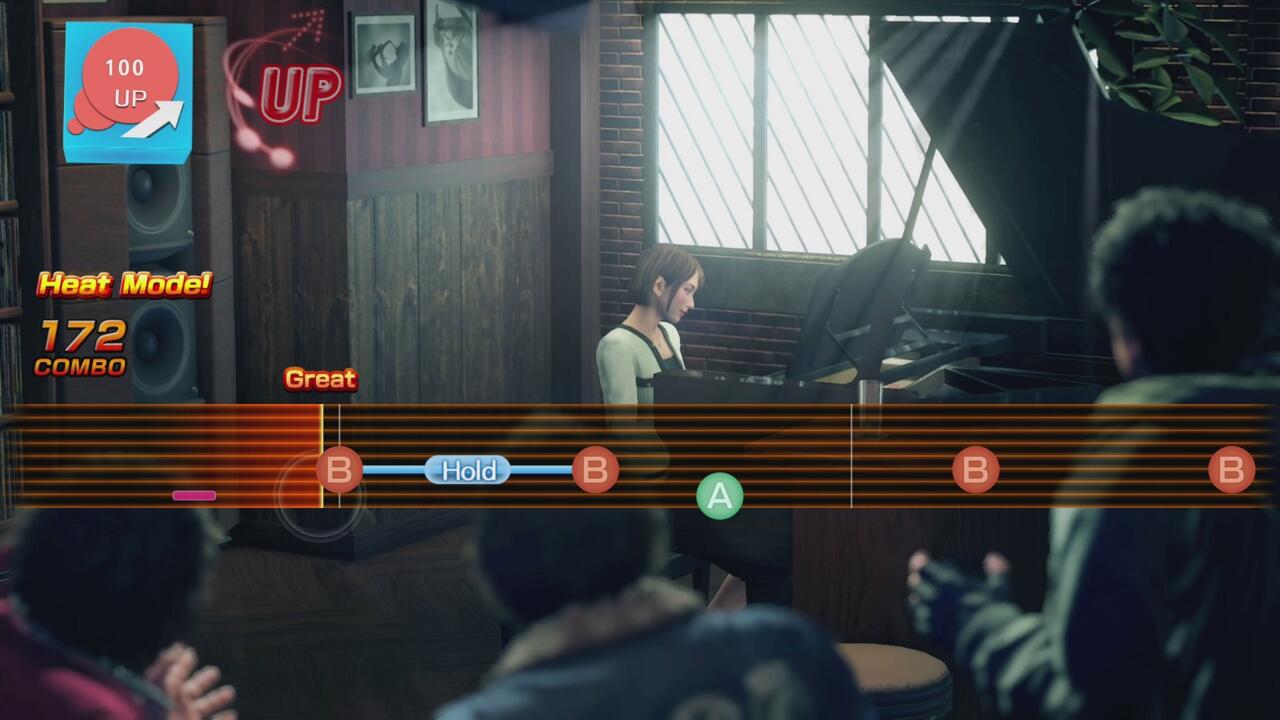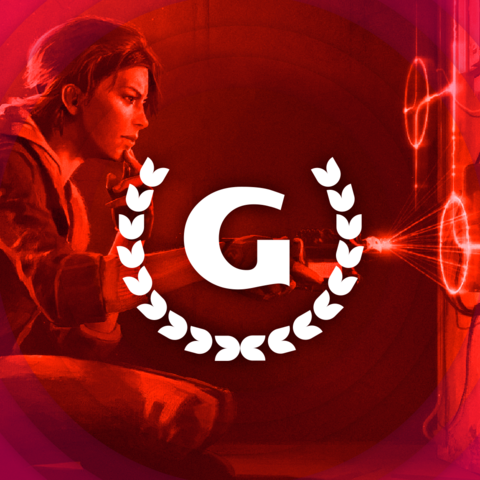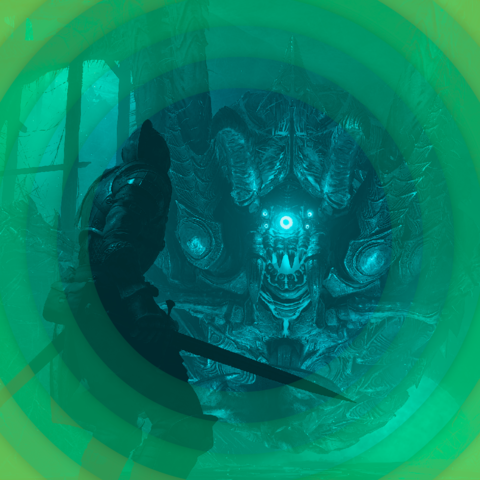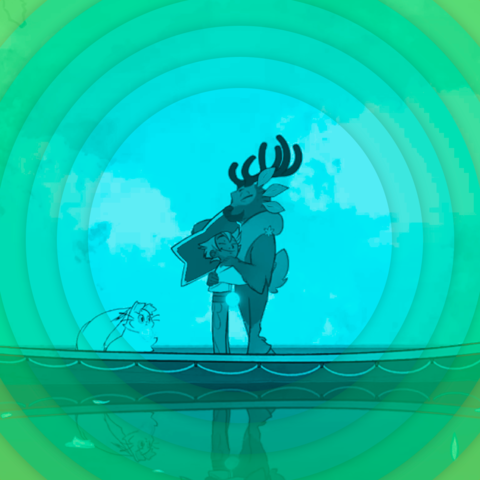Over the past week, we've been publishing features for what we've nominated to be the best games of 2020. On December 17, we will crown one of the nominees as GameSpot's Best Game of 2020, so join us as we celebrate these 10 games on the road to the big announcement. Be sure to check out our other end-of-the-year coverage collected in our Best Games of 2020 hub.
For several years, those who followed the Yakuza franchise were captivated by the legend of Kazuma Kiryu. He's been the driving force behind the series, even when he's off-screen, but for as much as we love him, Yakuza 6 let us know it was time to move on. It's not easy to follow up the story of a strong character who has become beloved over seven games, so Yakuza: Like a Dragon had a lot to live up to. Now, however, it’s hard to imagine the series without our new lead and best boy Kasuga Ichiban.
Like a Dragon isn't just about winning the hearts and minds of long-time fans, it was also an opportunity to show newcomers what Yakuza has always been about, and inviting them to enjoy it without having to wonder where to start or if they should play previous entries (I mean, they should, but still). That's certainly a reason why Like a Dragon landed on GameSpot's 10 best games of 2020--folks without prior knowledge were able to jump into the wild mix of gripping drama and absurdist humor and get the full Yakuza experience. But Like A Dragon is so much more than just a convenient entry point for newcomers.
Ichiban's role as the new main character gives Yakuza a fresh start but, more importantly, he’s an immediately lovable person. He's a kid at heart, motivated to become a hero just like in his favorite game series Dragon Quest. Although he's loud and naive, Ichiban always means well. He just wants to be loved and give back to people. In demeanor, it's like he's the polar opposite of Kiryu, but what is common among them both is that heart of gold.
One of Yakuza's strongest assets is melodramatic storytelling that ropes you in and has you gripped from beginning to end. And Like a Dragon has it all--alliances and betrayals, shifts in power, adversaries becoming trusted allies, warmth and heartbreak, and the determination to fight for what you care about most. There's a tangled web of relationships between street gangs and the organizations that operate above them, with some real heinous crimes taking place. It's a fascinating backdrop that allows you to peer into the hearts and minds of its characters--for better and for worse.
Once the goofiness starts to settle in, you find that this game has a big heart, and just like how Ichiban grew throughout his journey, Like a Dragon proves that the series did as well.
Like a Dragon also leans harder into a broader human element that the series had only touched on in the past. As ridiculous as the action gets and as goofy as Ichiban's imagination can be, there are moments that ground the story with an earnest empathy for marginalized folks in Japanese society. The acceptance and normalization of sex work is a core theme, but also understood as a byproduct of working class burdens. Korean and Chinese characters aren't just used as villains anymore--Like a Dragon takes time to contextualize their struggles as immigrants in Japan, to show a bit of their culture and provide another lens for what it means to be an outcast.
Like a Dragon is a story about what it's like to come from nothing, too. It puts homelessness in a more humanizing light and central to your understanding of Yakuza's world rather than something in the periphery that a few characters face. There are impactful moments like Ichiban's early naivete about pulling yourself up by the bootstraps being met with the reality that people's circumstances can be wholly out of their control, and that it doesn't make them any lesser of a person. Ultimately, what you have is a rare JRPG about adulthood.

But this being a Yakuza game, it is just as much about its outlandish humor. The goofs, puns, jokes, and utterly ridiculous situations that the crew finds themselves in lead to genuine laugh out loud moments. For as over the top as they may be, many characterizations are also charming and endearing. The way enemies transform into silly caricatures or possessed beings as if cosplaying as evil foes, and the way your team transforms into their own "job" (effectively a character class) is often hilarious, making perfect sense given the explanation and yet no sense at all in light of the world it is happening within--you just accept it because it both works and is a brilliant concept.
It's the kind of cleverness with adding a touch of fantasy that lets you have such a bombastic turn-based combat system. While the action-brawler style of previous games had a penchant for extreme irreverence, the whimsical child-like nature of Ichiban draws you into the spells, attacks, and flourishes of the game's battles. It's a strategically engaging system that moves at a brisk pace and truly challenges you at key moments, all while channeling that pure, often chaotic, Yakuza energy.
The wealth of side content is another Yakuza staple that Like a Dragon nails--Dragon Kart racing, the business management sim, spending time with your friends, collecting cans for money, fighting off sheep to stay awake in a movie theater, and, of course, karaoke. These build out the city of Ijincho, Yokohama, but provide different and enticing ways to engage with the game world and its characters. And most of all, the iconic substories populate every street corner, further making it feel like a dense city filled with quirky characters and interesting--often bizarre--things to do.

One of the biggest things that sets Like a Dragon apart is its emphasis on the people who accompany Ichiban. As with most RPGs, the game gives you a party to have these awesome turn-based fights, but their influence and personalities are also what make Ichiban who he is. Saeko, Nanba, Adachi, and a few others who join (no spoilers) have their own motivations for sticking with Ichiban, but eventually, it's the fact that they have each other's backs that takes them to the top. You have heartwarming moments of sharing personal stories over whiskey, and dire situations where selflessness gets others out of trouble, too. Even outside the party dynamic, this is a game about the power of friendship made manifest, and how those bonds drive us to go beyond what we envision for ourselves.
It was a bit tough to think of where the franchise could go after Yakuza 6 and Judgment (which was a great spinoff). Like a Dragon charts a new and exciting path for Yakuza because it captures what so many of us love about the series, yet takes them to new heights by exploring more affecting themes. For RGG Studio's first RPG, it's an impressive switch in gameplay that has paid off in a big way. And, as always, its world is brimming with hilarity and fun activities. Once the goofiness starts to settle in, you find that this game has a big heart, and just like how Ichiban grew throughout his journey, Like a Dragon proves that the series did as well.















